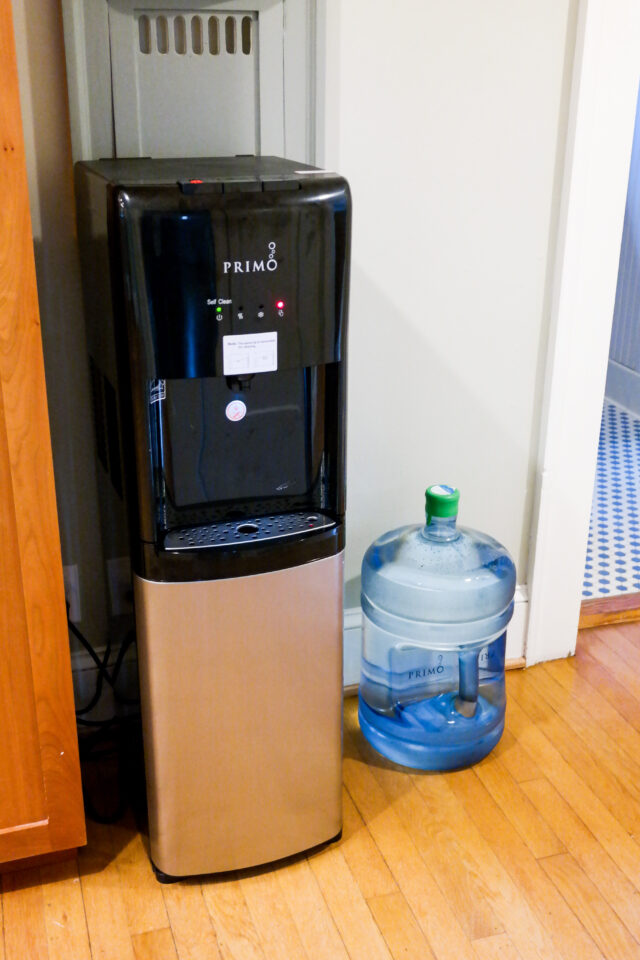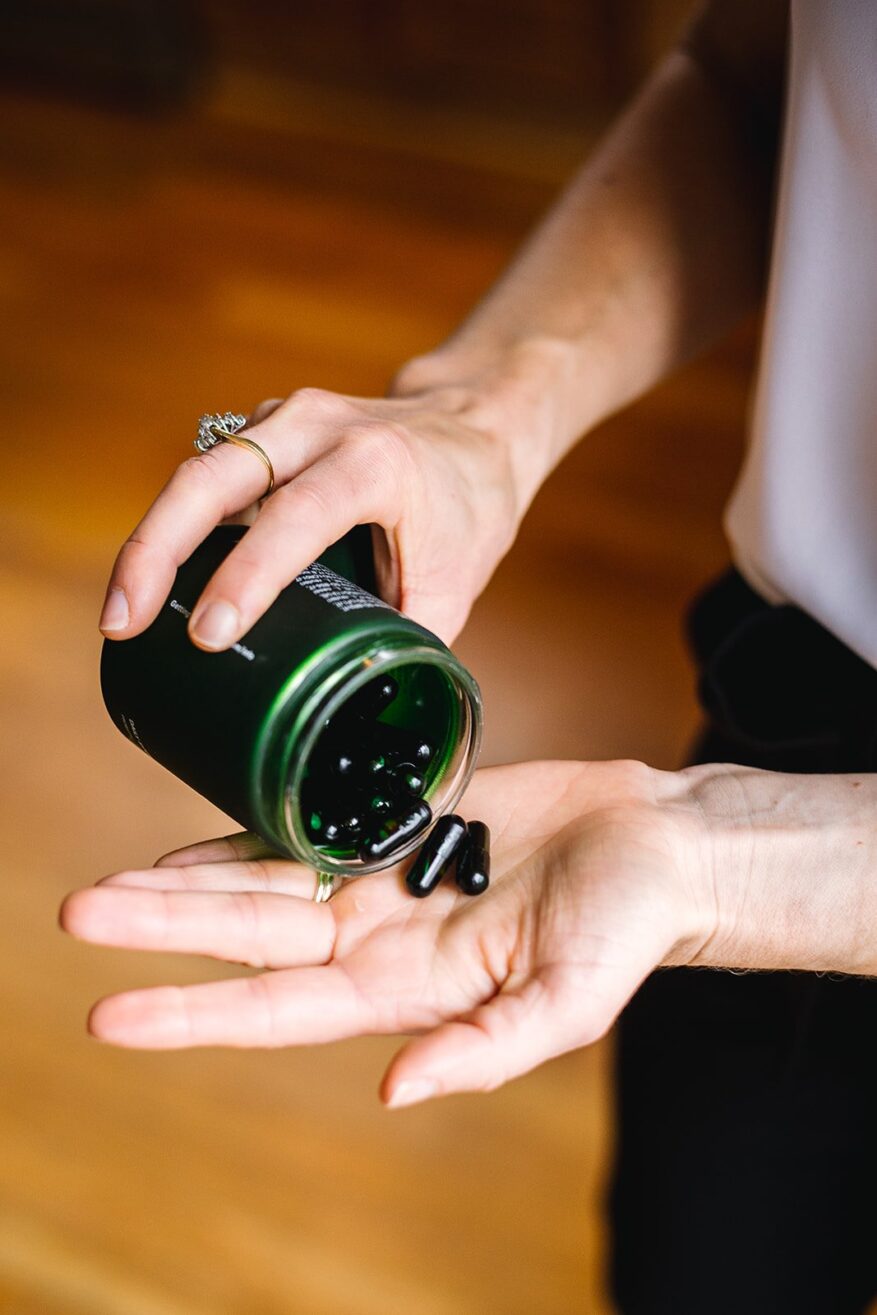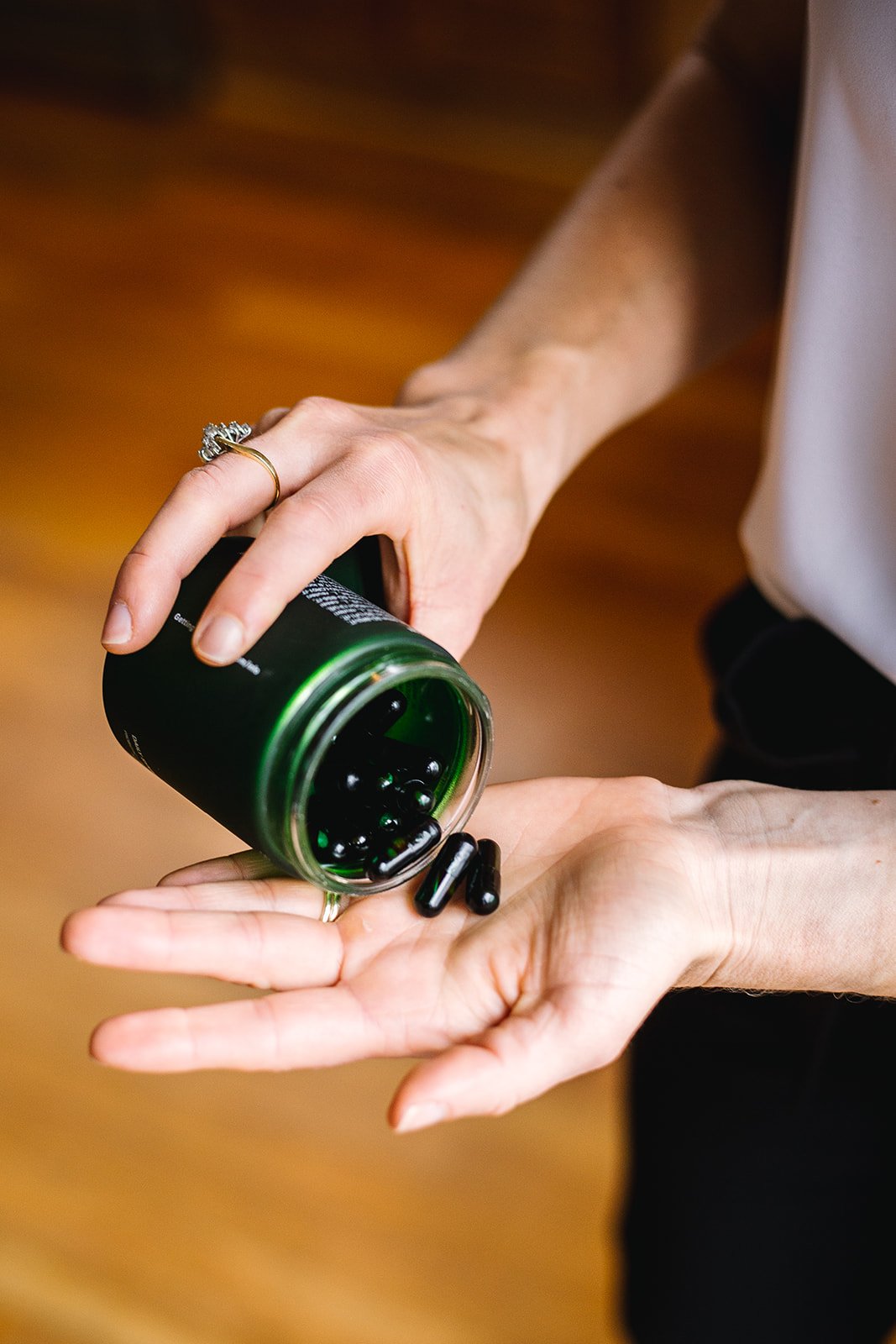


There are so many probiotics on the shelf, so how do you choose the right one? This post will help!
I’ve been probiotic brand hopping for years trying to find one that I loved. There’s just so much information out there on the benefits of one versus another and it became overwhelming to know which was right or better. So, I just switched brands every time, hoping that I got some sort of benefit from each with the variety of strains.
After years of trying dozens of options, I’ve landed on a brand that I love and now I’m only buying those. But before you land on a probiotic that you love, you may want to do some research.
First, let’s break down what probiotics are. Essentially, probiotics are living, good bacteria that have health benefits when consumed. Most people think of bacteria as germs that are bad for you, but scientists have been discovering that there are actually living organisms inside us that are beneficial bacteria. Some types of bacteria even produce byproducts as they move through your system, like short-chain fatty acids, which also improve your gut health. In short, healthy bacteria are good and necessary for your overall health.
In fact, you’ll even be encouraged to eat fermented foods — which contain probiotics — when you’re prescribed an antibiotic. Probiotics foods include yogurt, kimchi, miso, sauerkraut, and kombucha. But, those foods alone don’t rival the amount you’ll get from a probiotic supplement.
I’m a big believer in researching things for yourself before you begin putting things into your body (which is why I’m so passionate about clean skincare!) and I feel the same about probiotics. DO YOUR RESEARCH! Make sure you know what you’re taking and why you’re taking it. This article from Harvard Health outlines the benefits of probiotics and how they can benefit your gut. And this is a really informative read from The National Center for Complimentary and Integrative Health about how they’re regulated and how they may help certain conditions. The source I’ve learned the most from (and where I buy mine now!) is Seed. They also have a lot of helpful resources on their website.
Here are some things to consider as you try to find and choose the right probiotic for you.
This is a great way to tell what you’re getting in a probiotic. Do some digging into the brand and their claims!
One of the reasons I love Seed so much is that they tell you EVERYTHING about what goes in their probiotic pills. There’s no stone unturned so I feel really good about what I’m buying.

CFU stands for Colony-Forming Units. The CFU number tells you how many bacteria from that sample are capable of dividing and forming colonies. This tells you how “potent” the probiotic is. But, a large number doesn’t always mean better results. The type of probiotic strains matter too. And you need a probiotic that has been studied in humans and has actual results and outcomes.
If a brand states you that the more you put in your body, the better off you’ll be, be very skeptical!!
This is an interesting part of research that I found. Since most of the time you’ll find probiotics in the refrigeration section of the store, you’d expect that you need to keep all probiotics in the fridge. However, “if a probiotic does not survive at ambient temperature outside of the refrigerator, it can reflect weak stability of the product, low viable organism count, or inadequate overages in formulation.” (Source).
So if you’re buying a high quality probiotic, you shouldn’t have to keep it in the fridge! But since probiotics are really sensitive, make sure you’re buying from a brand that packages the probiotic thoughtfully so that it’s protected until it reaches your body.
Given the sensitive nature of probiotics, time of manufacture does matter. But the good news about probiotic expiration dates is that if you take an expired probiotic, it likely won’t hurt you. However, after the expiration date has passed, it may not have the same potency that actually provides gut health. The shelf life will vary based on how the probiotics are packaged. Seed Probiotics, for example, are shelf stable for 18 months without refrigeration needed.
There are multiple families of probiotics, but the most common are Lactobacillus and Bifidobacterium. Sometimes yeast is used as a probiotic as well. Note that prebiotics are different from probiotics.
Lactobacillus is a bacteria found in your intestines. It’s known for producing lactic acid and has been effective in helping with irritable bowel syndrome. It helps our body break down food, absorb the nutrients we need, and works to keep your intestines strong and healthy. Keep in mind, however, that the name Lactobacillus is the name of the genus or group of bacteria with that name. So there are different strands of Lactobacillus that do different things.
Bifidobacterium is also a genus, which means there are specific and varying strands of it as well. It’s commonly known for also helping with IBS symptoms and helping to optimize immunity to illnesses.
Saccharomyces is a genus of fungi which includes yeasts. Strands of Saccharomyces is great for fighting off illnesses in the digestive system such as yeast.
There’s a common misconception that probiotics change your gut microbiome. Most probiotics don’t contain enough new bacteria to make actually make a big difference in the composition of your current gut microbiome. (Especially when you compare it to the trillions of microbes already living in your intestinal tract.)
So, how do you know if it’s working? Everyone is different and will feel different benefits at different times. You may have less bloating and better bowel movements and notice that in a relatively short period (e.g. 24-48 hours). Other benefits – like skin health, improved immune system, gut immune function, gut barrier integrity – will take longer to notice. And you might not notice anything at all!
Just like any change or addition to your diet, your body may experience some not so pleasant side effects. For 3-5 days, you might feel some gut upset, including tightness, mild nausea or changes in your stool. Things should improve after a few weeks. If not, it’s probably not the best probiotic for you!
The biggest difference I noticed was less bloating, less cramping, and better bowel movements. and I noticed all of that in about a week. Now that I’ve been taking the same probiotic for a while, I’ve noticed my stomach doesn’t hurt nearly as often after meals and there are even foods I tolerate MUCH better than I used to (like some wheat-based products). I obviously can’t prove that the probiotic made all the difference (there are scientists to study that better!), but I’m also not willing to stop taking my probiotics to test it out!!
And remember, there are a number of things you can do to improve your gut health beyond a probiotic. Don’t rely on a pill alone!


Leave a Comment
3 responses to “How to Choose a Good Probiotic”
Hi! I’d love to try the Seed probiotics, but according to their website, they’re not available until mid-August (estimated). I’m kind of desperate to start something before then. Do you know of any other source for these probiotics other than the manufacturer? If not, do you know of any other similar brands? Thanks!
I don’t know of any other brand that has the type of research and data behind it that Seed does! I think it’s worth ordering from Seed – I’ve heard some orders are shipping out early!
Thanks! I’m an impatient person, so l’ll probably just shop around for something else, but your post has taught me a lot about what to look for in a quality probiotic.